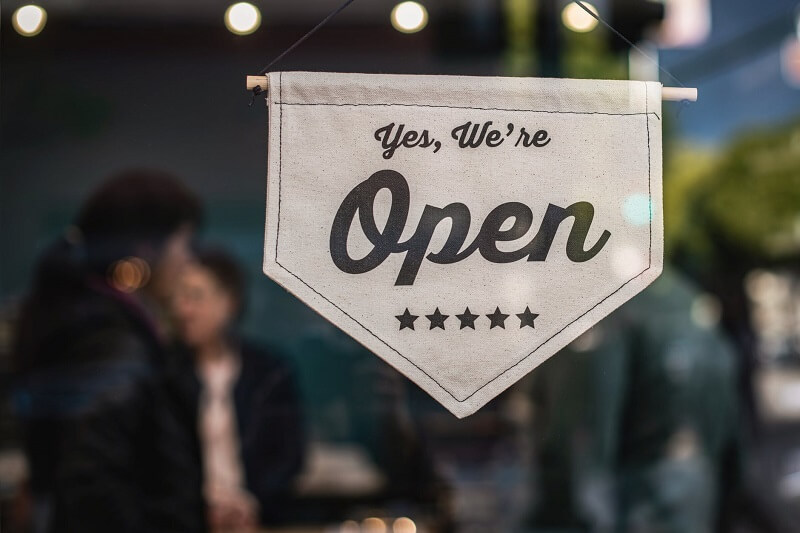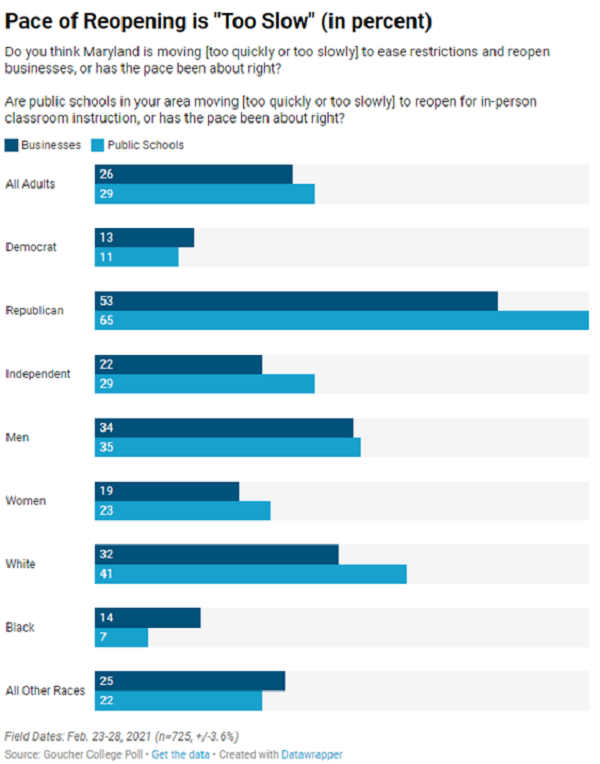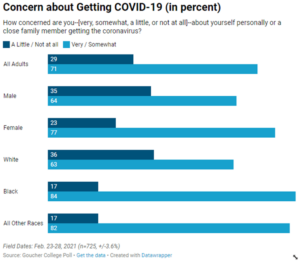
The debate over the pace of reopening has raged in Maryland from the moment coronavirus forced businesses to close and schools transitioned to virtual learning. Gov. Larry Hogan and the local executives — to whom he has delegated much of the decision-making power regarding coronavirus-related restrictions — and members of the Maryland General Assembly have faced public pressure from the full range of the “still not safe” to “it’s always been safe” gamut.
The growing availability of the COVID-19 vaccine, as well as the declining infection rate, brings Maryland to a new, albeit familiar, inflection point. Most public health experts warn that lifting restrictions too soon could result in a third surge of highly contagious variants. Others argue that the science is on the side of reopening.
Hogan, who has been less bullish on reopening than most of his Republican counterparts, has recently eased the capacity restrictions placed on businesses and venues. This move follows his earlier calls for public schools to return to hybrid instruction by March 1. Both decisions have been met with backlash from advocates and Democratic lawmakers.
The recent Goucher College Poll found that a majority of Marylanders (56%) are generally happy with the pace that Maryland businesses are reopening; around a quarter think the pace is too slow, and another 15% think things are moving too quickly. (Note: The poll was taken before Hogan’s March 9 decision to lift restrictions.) At the same time, 31% think schools are reopening too fast, 37% say the pace is about right, and 29% think the pace has been too slow.
 In both cases, however, attitudes toward reopening reflect just how politized this issue has become.
In both cases, however, attitudes toward reopening reflect just how politized this issue has become.
Nearly two-thirds of Republicans think the pace of public school reopening in the state is too slow compared to only 11% of Democrats. A similar pattern is present in attitudes toward reopening and easing business restrictions: 53% of Republicans think the pace has been too slow compared to 13% of Democrats. Progressives want to slow the pace of reopening down, while conservatives want both schools and businesses to open as soon as possible. Moderates and political Independents find themselves, as they often do, somewhere in between.
Opinions toward reopening also vary significantly across race and gender lines. Compared to their white counterparts, Black Marylanders and other racial minorities are far less likely to say that schools and businesses are reopening too slowly. And men are more likely than women to think that things are moving too slow. These differences are likely grounded in the unequal ways in which the pandemic has impacted Maryland residents, and the marginalization these groups have faced historically.
 For example, Black Marylanders along with other racial minorities, have faced higher rates of infection and death from COVID-19. They are also more likely to work in jobs that present a greater risk of coming into contact with the virus on a daily basis and are currently being vaccinated at a much lower rate than their white counterparts. In other words, as it stands now, reopening presents a heightened risk to communities of color.
For example, Black Marylanders along with other racial minorities, have faced higher rates of infection and death from COVID-19. They are also more likely to work in jobs that present a greater risk of coming into contact with the virus on a daily basis and are currently being vaccinated at a much lower rate than their white counterparts. In other words, as it stands now, reopening presents a heightened risk to communities of color.
To that point, risk aversion is at least partially responsible for the differences in attitudes between men and women. Research and public polling over the course of the pandemic show that women have been more likely to take the coronavirus seriously and to agree and comply with restrictions aimed at stopping the spread of the disease. Women have also suffered more significant economic loss and borne the brunt of childcare responsibilities during the pandemic.
Women and Black Marylanders differ from their male and white counterparts in another critical way: they are more concerned that they or a close family member will contract COVID-19. Accordingly, those expressing higher levels of concern are more likely to say that the state is moving too quickly to reopen.
Every Marylander wants a return to normalcy, even if they aren’t particularly optimistic that the end of the pandemic is near. While the pandemic has pitted economic interests against public health recommendations and left leaders scrambling to find the right balance between saving lives without destroying livelihoods, Maryland’s leaders must consider why some Marylanders are more apprehensive than others and develop their reopening plans accordingly.
— KIERA ABDUL AND MILEAH KROMER
Abdul is a senior at Goucher College majoring in international health and will be attending Johns Hopkins Bloomberg School of Public Health in the fall. She lives in Lutherville. Kromer is the director of the Sarah T. Hughes Field Politics Center and an associate professor of political science at Goucher College.





 Creative Commons Attribution
Creative Commons Attribution